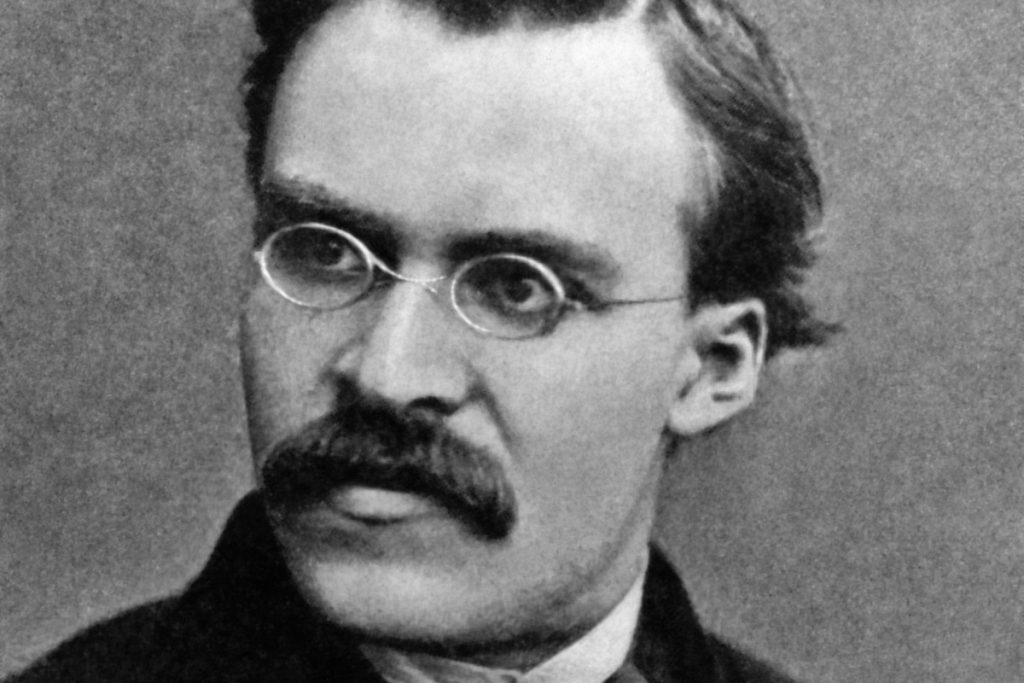
Does Nietzsche have anything important to say to us, we the current inhabitants of a global age?
Nietzsche speaks of spiritual health as a result of the superabundance of the life force, of a Dionysian affirmation of ones existence of ones process of becoming what one is.
The courage of laughter is called for. A profound laughter that is in a position to negate what Nietzsche regarded as the worst possible thought: that existence, my existence repeats itself over and over again without end, forever.
With this terrible thought as guide, am I still strong enough to absolutely affirm my current existence as it is, as well as the choices I am about to make for myself? Do I have the necessary spiritual resources to fully affirm myself and my willed trajectory of self-becoming?
Whether or not Nietzsche thought that the Eternal Return of Everything was an ontological reality or not (after all it could never be conclusively proven) is not the point. We must act as if it were real. Its function is as the ultimate moral instance in Nietzsche’s entire philosophy.
For indeed, despite some of his histrionic protestations Nietzsche is a moral philosopher.
Did he not call for a reevaluation of all values?
In his writings he went a long way towards such a reevaluation. For Nietzsche, everything that encouraged extreme energetic creativity was good, all that stood in its way was bad.
And furthermore, all doctrines, habits, thoughts that steered ones gaze away from the world as experienced by our senses was delusion, demagoguery, and decadent.
Nietzsche, similar to Tocqueville, Mill, and Mathew Arnold, envisioned a future where people would be culturally, politically, emotionally, and, philosophically castrated. Nietzsche referred to such pitiful creatures as the “last men” or “men without chests”. Individuals purely concerned with their material well being, believing themselves to be perfectly happy in the historically diminished possibilities of their lives. These future beings would be the antithesis to the hero and would experience the current existence of such a person among them as “mad”. In the future there are no great deeds, only herd like obedience. Aldous Huxley wrote an entire book about them: Brave New World.
But what of our world? Are we too “last men” or are we, instead, preparing for the arrival of the overman (Übermensch)?
For Nietzsche, man was something that was to be overcome. He was a “rope tied between beast and overman–a rope over an abyss”.
In 2009, Stefan Lorenz Sorgner wrote a famous essay comparing Nietzsche’s philosophy with transhumanism. Not surprisingly, he found some strong overlap between the two. In this same essay, Sorgner also coined the expression “autonomous eugenics”. By this he meant the freely chosen physical transformation of the individual through the intervention of technology. Ultimately, according to Sorgner, the how, how much, and why of self-enhancement mediated by future technologies is and should be a moral choice. Not, as in the past, a coercive policy carried out by the state (State Eugenics).
Where I take issue with Sorgner’s provocative article is whether Nietzsche really had the post-human of the Twenty-First century in mind? Frankly, I don’t think that he could have. I believe that Nietzsche rather than looking to the far future of a technologized humanity had the example of Aristotle’s “great souled man” in mind when thinking about the eventual arrival of the overman. Like Rousseau and Hegel before him, Nietzsche looked to some of the ancient Greeks for examples of exemplary human beings.
Continuing this thought, I suspect that Nietzsche would be initially suspicious of the transhumanist project of human enhancement or transformation. He, being a man of his time, would have expected the coming of the overman to be a question of self-discipline leading to a psychological transformation not a physical one. Indeed, we can ask in what way would a post-human necessarily be better at the self-creation of new life-affirming values than the old human being? Would physical, technological enhancement by itself lead to superior forms of cultural existence? I think Nietzsche would have been skeptical at the prospect.
Arguing now for the otherside and thus beyond Nietzsche, I think Sorgner and other transhumanists are possibly right in assuming that a posthuman would be in a good position to create new values and ways of living. Simply because it is hard to imagine what the removal of the threat of imminent death would do to the self-understanding of a sentient being. What cultural, political projects would such a person pursue? Neither Nietzsche or anyone else for that matter has a clear answer.
So what’s the verdict? Last men or new (over) men? Some of both I think.
In so far as many of us are caught up in a lifestyle of consumption and the cultivation of daily, small pleasures, we cannot view ourselves as unduly heroic or value creating. On the other hand, technological advances are slowly holding out the promise of physical transformation, of a human being qualitatively different from the one now existing. Even so, it will remain a question for some time yet whether or not those who are pursuing transhumanist dreams are the harbingers of the overman or the last instance of a neurotically self-preoccupied, overly self-satisfied, fantastically egoistic, petty, cowardly, morally small pipsqueak of a human whom Nietzsche assumed would eventually and permanently inherit the earth.
Bio: PhD in Continental Philosophy from Sofia University. Regular contributor to Counterpunch. Teaches at Ravensburg-Weinburg and Neu Ulm University of Applied Sciences.







































